Commercial Fire Safety in the UK: Protecting Businesses and Employees
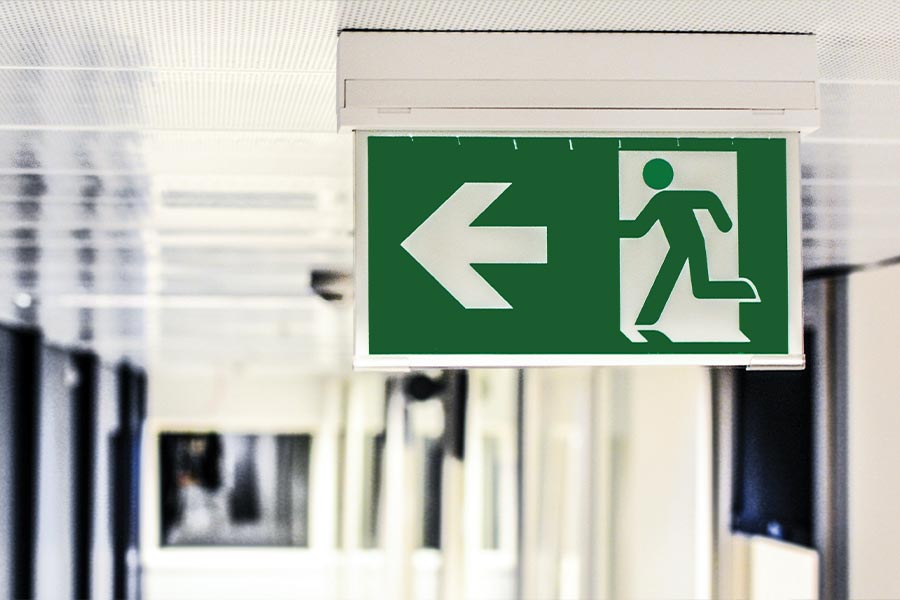
Commercial properties are busy places with lots of activity, containing valuable assets and employing a large number of individuals. However, the potential for fire can pose a significant threat to businesses, employees, customers and the environment alike. Implementing robust commercial fire safety measures is essential to safeguard lives, protect property and maintain business continuity.
To help you out, we’ve compiled a list of the key Commercial Fire Safety actions you should take to protect your business and employees:
Key Commercial Fire Safety Tasks to Protect Your Business and Employees
Conduct a Comprehensive Fire Risk Assessment
A comprehensive fire risk assessment is the basis of commercial fire safety. Businesses must identify potential fire hazards within their premises, assess the risk level and develop a comprehensive fire safety plan. This plan should include the installation and maintenance of fire safety equipment, such as fire extinguishers, smoke alarms and sprinkler systems.
Establish Comprehensive Information About Your Business
You can never predict that an incident will never occur in your business but we can reduce the risk as much as possible. If your business has a fire, along with ensuring your staff and customers can evacuate quickly and safely, it is important to try and reduce the impact of the fire. One of the ways of doing this is to provide a First Response Pack to the Fire Service, these packs provide the initial Fire Officer with important information about your business so they can establish an effective operational plan quickly and therefore reduce the impact of the fire and reduce the impact on your business continuity.
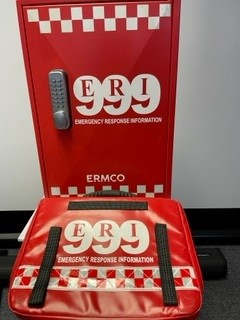
Install Adequate Fire Safety Equipment
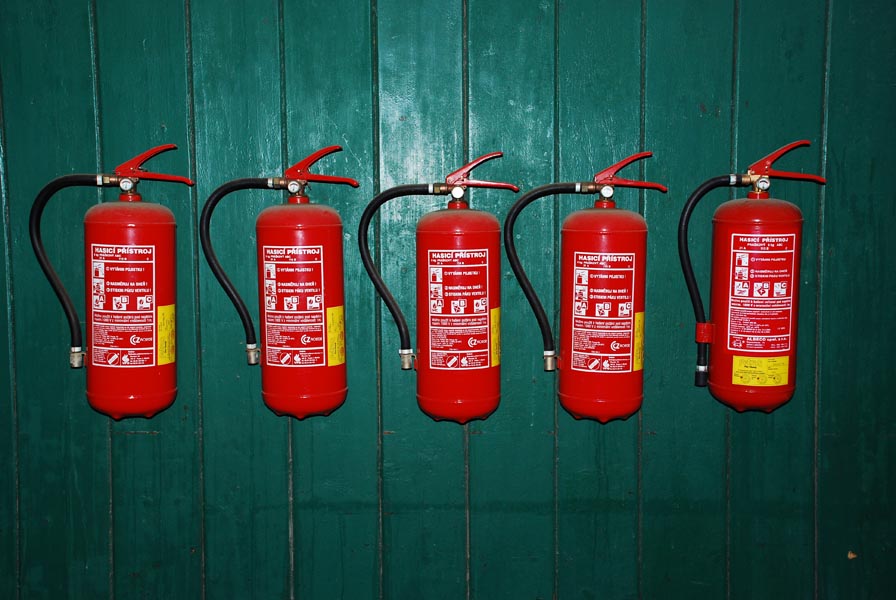
Providing commercial buildings with appropriate fire safety equipment is crucial to be able to respond effectively to fire incidents.
Ensure that fire extinguishers are strategically placed and easily accessible. Automatic fire detection and suppression systems, like sprinklers, should be in place, especially in high-risk areas.
Always remember to either consult a professional or do your research, there are numerous types of fire extinguishers available, it is important to install the correct type of extinguisher or suppression system for the risk.
Establish Clear Emergency Evacuation Procedures
Well-defined emergency evacuation procedures are vital to ensure the safe and efficient evacuation of employees and visitors in case of a fire. Post evacuation routes and assembly points prominently throughout the premises, and regularly conduct fire drills to familiarise personnel with the procedures.
Train Employees on Fire Safety Protocols

Educate all employees on fire safety procedures, including the proper use of fire safety equipment and the importance of reporting potential hazards promptly. Fire safety training should be an integral part of employee development and conducted regularly to reinforce safe practices.
Implement Fire Safety Measures in Storage Areas
Storage areas often contain combustible materials and flammable liquids. Ensure proper segregation and storage of these materials and use fire-resistant cabinets (COSHH cabinets) or containers where necessary.
Maintain Electrical Systems and Equipment

Regularly inspect and maintain electrical systems, equipment, and appliances to prevent electrical fires. Overloaded circuits, frayed wires, and faulty equipment should be addressed promptly.
Promote Responsible Smoking Practices
If smoking is permitted on the premises, designate smoking areas away from buildings and provide safe receptacles for cigarette disposal. Educate employees about the importance of responsible smoking practices to prevent fire incidents.
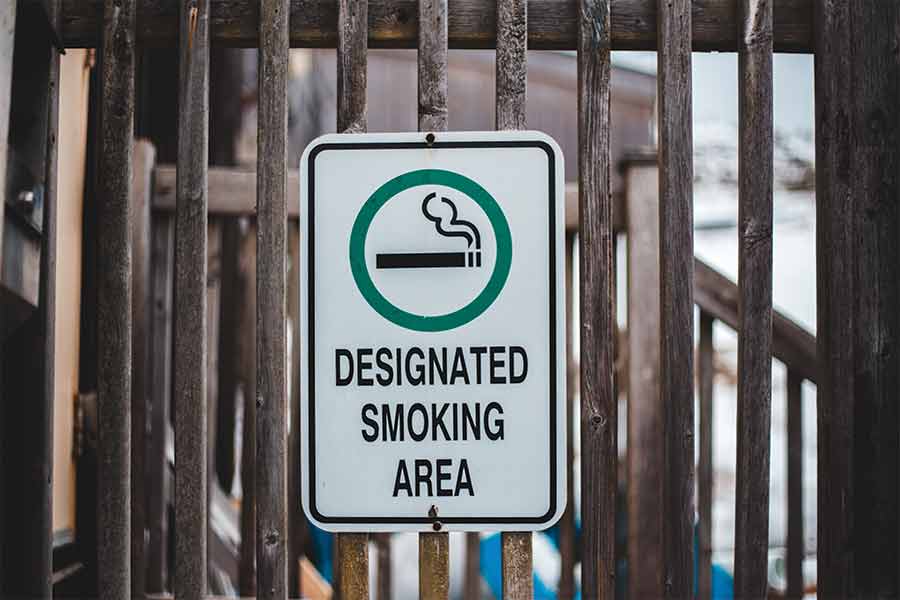
Monitor and Control Fire Risks in Kitchens
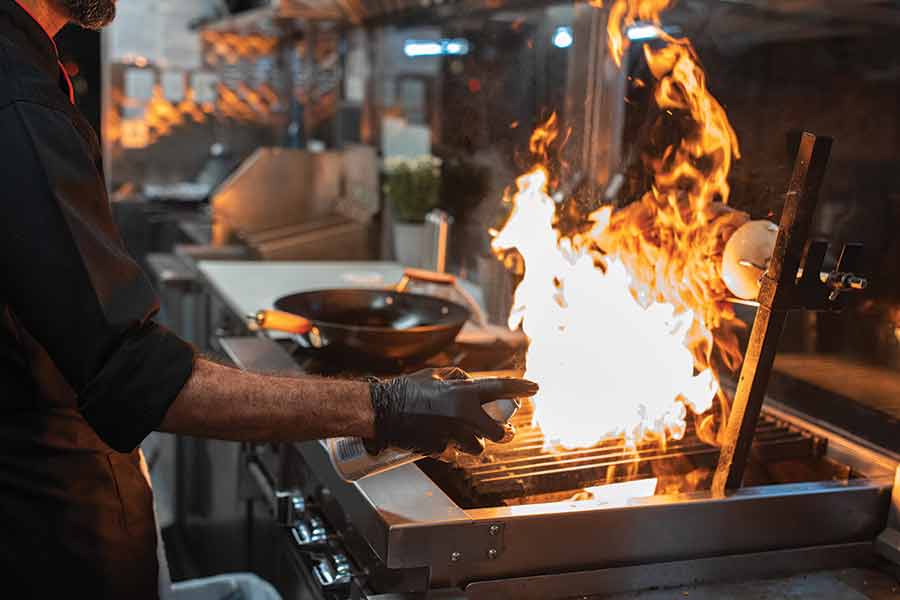
For buildings with commercial kitchens, extra precautions are necessary. Regularly clean and maintain cooking equipment, ensure proper ventilation and train kitchen staff in fire prevention and control.
Have Proper Fire Exits and Emergency Lighting
Fire exits should be clearly marked, unobstructed and equipped with emergency lighting. These exits are essential for a swift and safe evacuation during emergencies. Fire exits and emergency lighting should be tested on a regular basis.

Partner with Fire Safety Professionals
Collaborate with fire safety professionals and your local fire service to receive expert guidance and stay up to date with the latest fire safety regulations and best practices.
ERMCO are experienced ex-fire service officers with years of experience in the sector. We can provide the information, review your fire safety measures, ensure your staff are trained and develop your premise risk information. Remember, as ex-operational commanders we know what information is relevant for those initial fire service attendees at any incident you have.

Commercial fire safety is not just about compliance with regulations; it is a commitment to protecting the lives of employees, customers and the valuable assets of a business. By conducting thorough fire risk assessments, implementing essential fire safety equipment, providing the premise risk information and fostering a culture of fire safety through training and education, businesses can significantly reduce the risk of fire incidents. Emphasising fire safety as a priority in commercial establishments creates a secure working environment, bolstering employee morale and business reputation. Ultimately, investing in comprehensive commercial fire safety measures is an investment in the well-being and success of any business in the UK.